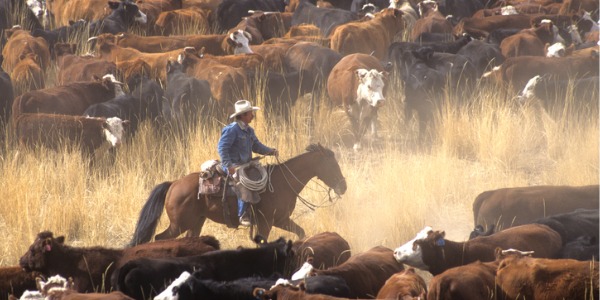What is a Rancher?
A rancher owns or manages a large piece of land for the purpose of raising livestock. The term "rancher" is most commonly associated with the western United States, where large-scale cattle ranching has been a way of life for generations. Ranchers are responsible for the care and management of their animals, as well as the maintenance of their land and equipment. They may also be involved in the sale and distribution of their livestock to meat processors, as well as the marketing and distribution of other ranch-related products, such as leather goods or wool.
Ranchers must possess a wide range of skills and knowledge to be successful in their profession. They must have a deep understanding of animal behavior and nutrition, as well as expertise in land management and conservation. In addition, they must be able to navigate the complex business landscape of the livestock industry, including issues related to pricing, regulations, and supply and demand. Ranchers are often deeply connected to their communities and take great pride in the role they play in preserving the heritage and traditions of their region.
What does a Rancher do?

Ranchers are responsible for managing large areas of land used for grazing livestock, such as cattle, sheep, and goats. Ranchers not only produce meat, milk, and other animal products that are essential to our diets but also help to maintain biodiversity and preserve natural habitats. Additionally, ranching can be a significant source of employment, particularly in rural areas where other job opportunities may be limited. Ranchers also contribute to local and national economies through the sale of their products and the purchase of supplies and equipment.
Duties and Responsibilities
The duties and responsibilities of a rancher can vary depending on the size and type of the operation. However, some common duties and responsibilities of a rancher include:
- Animal husbandry: Ranchers are responsible for the health and welfare of their livestock. This involves feeding, watering, and providing appropriate shelter for the animals. They also must manage breeding and reproduction, oversee vaccinations and medical care, and monitor the overall health of their herds.
- Land management: Ranchers must manage and maintain the land on which their livestock graze. This involves overseeing irrigation systems, managing pastures, and controlling invasive species. They also must maintain fences and other infrastructure to keep their animals safe and secure.
- Business management: Ranchers must manage the financial aspects of their operation. They must develop budgets, purchase equipment and supplies, and market their products to buyers. They also must manage employees and oversee payroll and other administrative tasks.
- Equipment maintenance: Ranchers must maintain and repair their equipment, including tractors, trucks, and other machinery used in their operations.
- Environmental stewardship: Ranchers must be good stewards of the land, ensuring that their operations do not harm the environment. They must manage waste and water use, and comply with environmental regulations.
Types of Ranchers
There are several types of ranchers, each with their own unique focus and specialization. Some common types of ranchers include:
- Cattle Ranchers: Cattle ranchers raise and breed cattle for meat production. They manage large herds of cattle, and focus on maintaining the health and well-being of their animals.
- Sheep Ranchers: Sheep ranchers raise and breed sheep for wool, meat, and milk production. They are responsible for managing the health and well-being of their flocks, as well as shearing the sheep to obtain their wool.
- Horse Ranchers: Horse ranchers breed and train horses for various purposes, including racing, riding, and ranch work. They are responsible for managing the health and training of their horses, as well as marketing them to buyers.
- Dairy Farmers: Dairy farmers raise and breed cows for milk production. They are responsible for managing the health and well-being of their cows, as well as the production and distribution of their milk products.
- Bison Ranchers: Bison ranchers raise and breed bison for meat production. They manage large herds of bison and focus on maintaining the health and well-being of their animals.
- Organic Ranchers: Organic ranchers focus on producing meat, dairy, and other products using organic farming practices. They prioritize the health and well-being of their animals, while also minimizing the use of synthetic pesticides and fertilizers.
What is the workplace of a Rancher like?
The workplace of a rancher is typically outdoors and can be physically demanding. Ranchers spend most of their time on their land, tending to their livestock and managing their operations. The work can be physically demanding, requiring a lot of walking, lifting, and manual labor. Ranchers often work long hours, starting early in the morning and working late into the evening, especially during peak seasons like calving or harvest.
The work environment can also be remote, with ranches often located in rural areas far from cities or towns. This can make it challenging for ranchers to access resources like medical care, supplies, and other services. Ranchers must be self-sufficient and resourceful, able to solve problems and handle emergencies on their own.
Despite the challenges, many ranchers find the work fulfilling and rewarding. They have a deep connection to their land and their animals, and take pride in producing high-quality products for consumers. The work can also be very seasonal, with busy periods of activity followed by quieter times. This can provide ranchers with some flexibility in their schedules, as well as opportunities for rest and relaxation during slower periods.
Ranchers are also known as:
Stockgrower
Cattleman
Cowboy
Stock Grower
Cowman
Cattle Baron